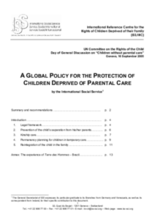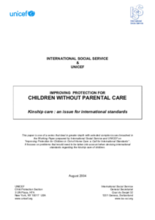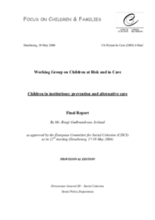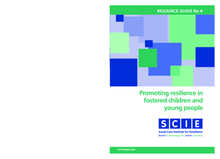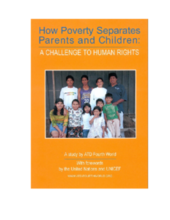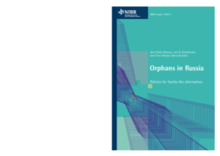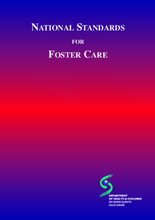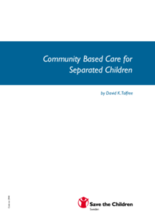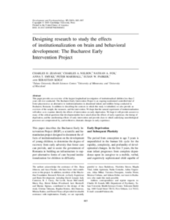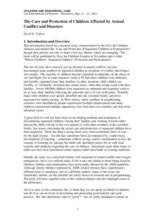Displaying 2111 - 2120 of 2168
This paper presents a set of global policy guidelines for the protection of children without parental care. It recommends the need for a global understanding of best practices within the legal framework of the UN Committee on the Rights of the Child.
Outlines problems and issues in providing appropriate out-of-home care solutions. Advocates for development of more comprehensive international standards for out-of-home care.
This report contains an overview of alternative care in Europe, the effects of institutions on children, statistical information and the different approaches of child protection systems within Europe. It includes reforming institutional care, foster care, post-care support, and the role of the social worker.
A guide to building a child-focused foster system that works with the strengths of children and young people to enhance their resilience and ability to cope with adversity. It outlines practical ways to support caring relationships and create positive educational experiences that bolster self-esteem and self-efficacy.
An executive summary of lessons learned on preventing family separation in poverty stricken communities. Brief case studies from Guatemala, Haiti, Philippines, United States and Burkina Faso.
The objective of this research project is to contribute to the process of facilitating a more family-like childhood for Russian orphans.
These Standards are based on the relevant legislation, regulation and guidance and best practice derived from evidence based research and professional experience from Ireland and abroad.
A paper discussing the shortcomings of systems in which separated children are placed into residential/ institutional forms of care. It also considers community-based and some other forms of care as alternative approaches to preventing unnecessary separation of children from their families.
An overview of the largest longitudinal investigation of institutionalized children less than 2 years old ever conducted.
Overview of a research study which provides guidelines for care of separated children in large-scale emergencies, focusing on the negative impact of residential care, extended family care, spontaneous and agency fostering, adoption, and alternative placements for adolescents.

